The Driveway and Sidewalks
The driveway and sidewalks of your new home add a ton of curb appeal when done correctly. They can also add value. The four most popular materials for use in a driveways are concrete, asphalt, pavers or gravel.
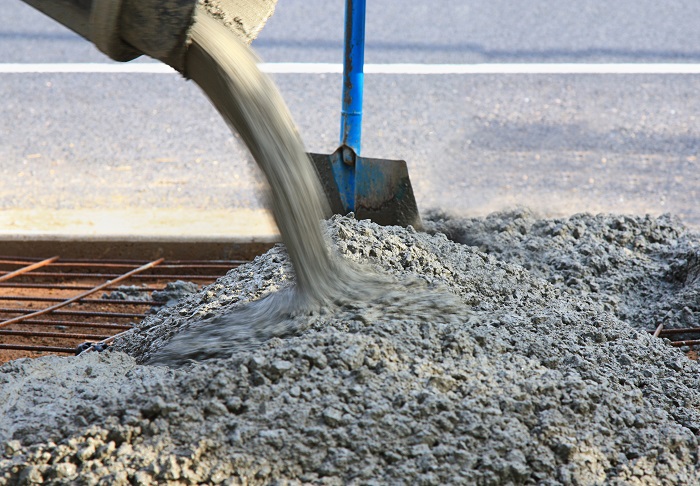
Concrete for the Driveway and Sidewalks
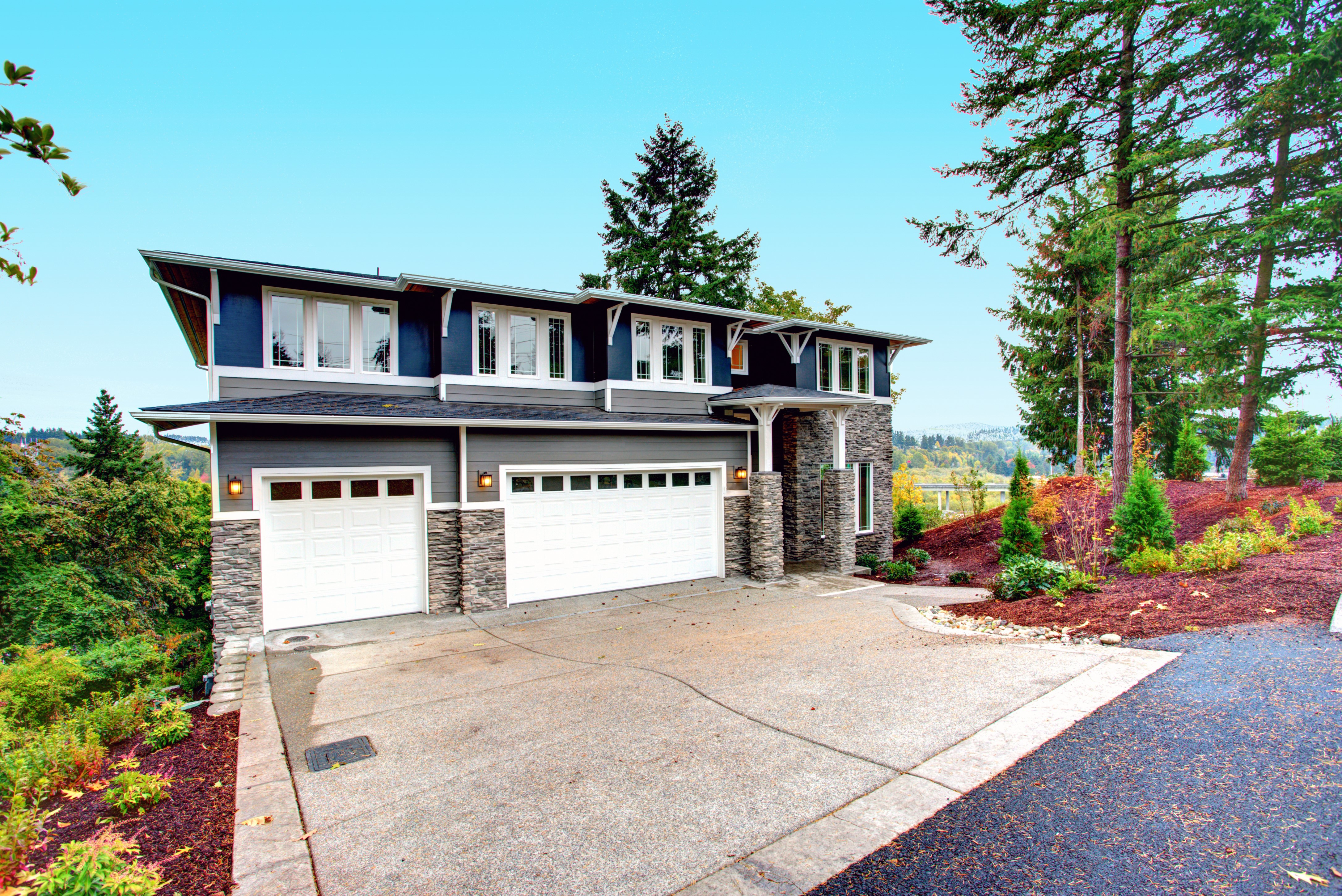
If you are using concrete for the driveway and sidewalks, you may hear sub-contractors talking about "flatwork." The term is derived from the action of pouring the concrete, then leveling it into a flat surface. A concrete driveway should last you upwards of 30 years, as long as it is well-maintained.
Flatwork - An overview
Flatwork should be done:
- after the masonry, brick or siding is in place so there is less chance of damaging the finished surface.
- after all underground water, sewer, gas and electrical lines have been dug, placed and passed inspection.
- before your landscaping is roughed in.
Things to Know About Flatwork
|
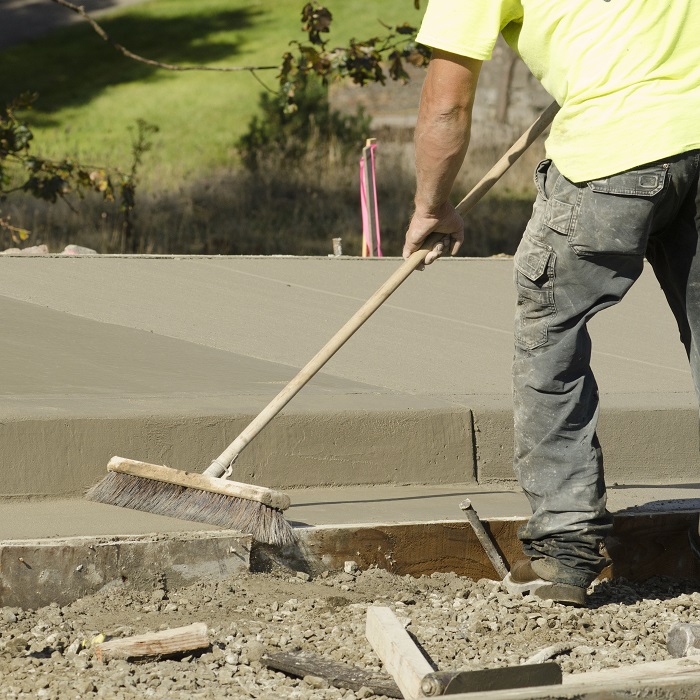 Broom Finish 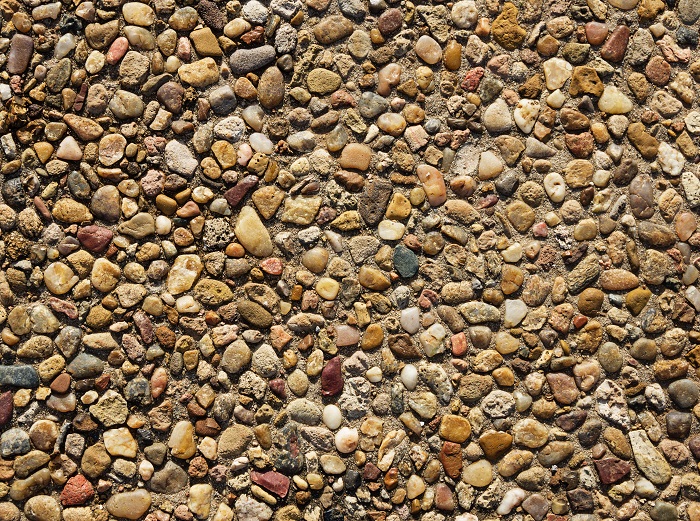 Exposed Aggregate 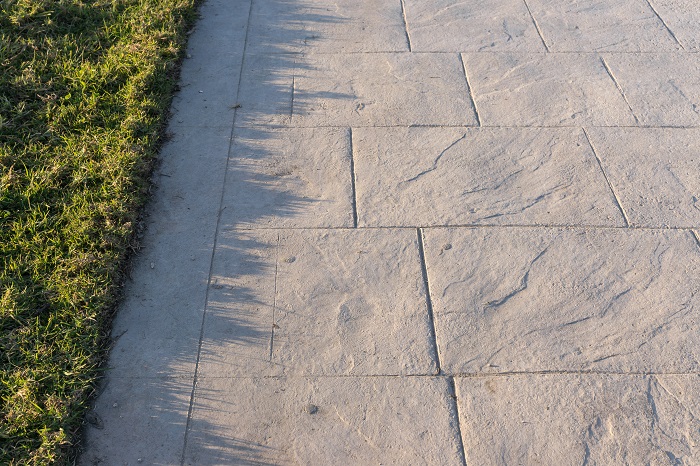 Decorative Stamped - Slate |
Asphalt for the Driveway and Sidewalks

Asphalt has some advantages, the primary reason being it is cheaper than concrete and more practical for your car's long life when compared to gravel. If you use well-compacted gravel as your base for the asphalt, that should provide enough strength for a long lasting surface. Asphalt can last anywhere from 12 to 20 years. Additionally, adding a sealer after the 6 to 12 month waiting period for curing, should help with longevity as well.
How long asphalt "lasts" is also dependent on how good it looks to the owner. With aging and cracking a factor, shoveling snow could become a true headache in some regions.
Gravel for the Driveway and Sidewalks
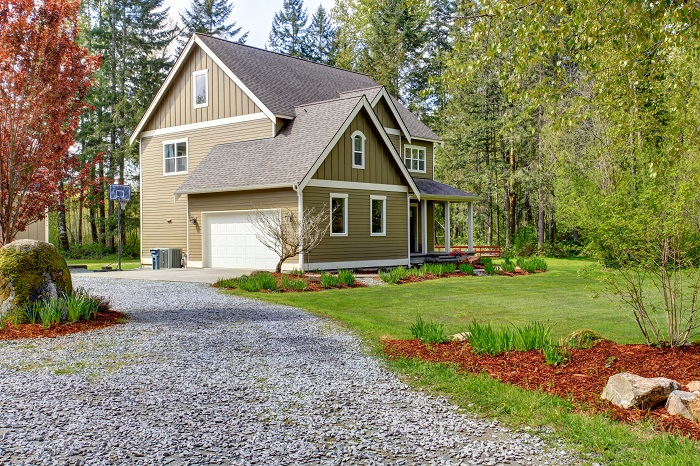
The term gravel can refer to any loose rock or stone that is larger than sand but smaller than cobble, which means it can range from about 1/10 inch to 2.5 inches in diameter. Choosing a gravel for the driveway typically means a processed product that contains rocks and sand as well as clay. This mixture compacts much better to create a flat and stable surface.
There is a debate on whether or not gravel driveways last longer than concrete. On the one hand, gravel can be repaired and replenished anytime you want. Concrete and asphalt driveways on the other hand are more difficult to fix and costs to repair are much higher. Plus, a nicely compacted and properly laid gravel driveway can last up to 100 years and has less seasonal freeze-thaw cycles which can cause significant cracking and settling in solid driveway materials.
For more information about this subject, you can go to The Spruce.



